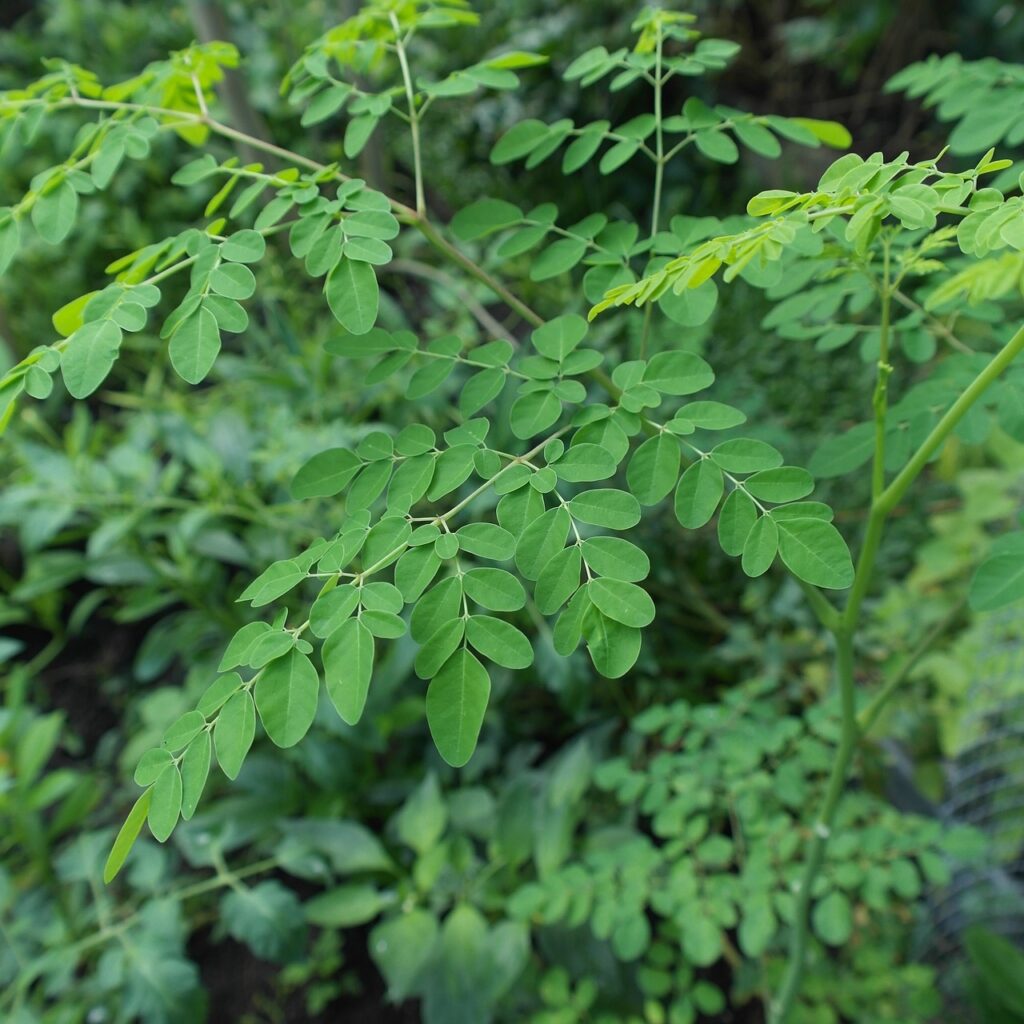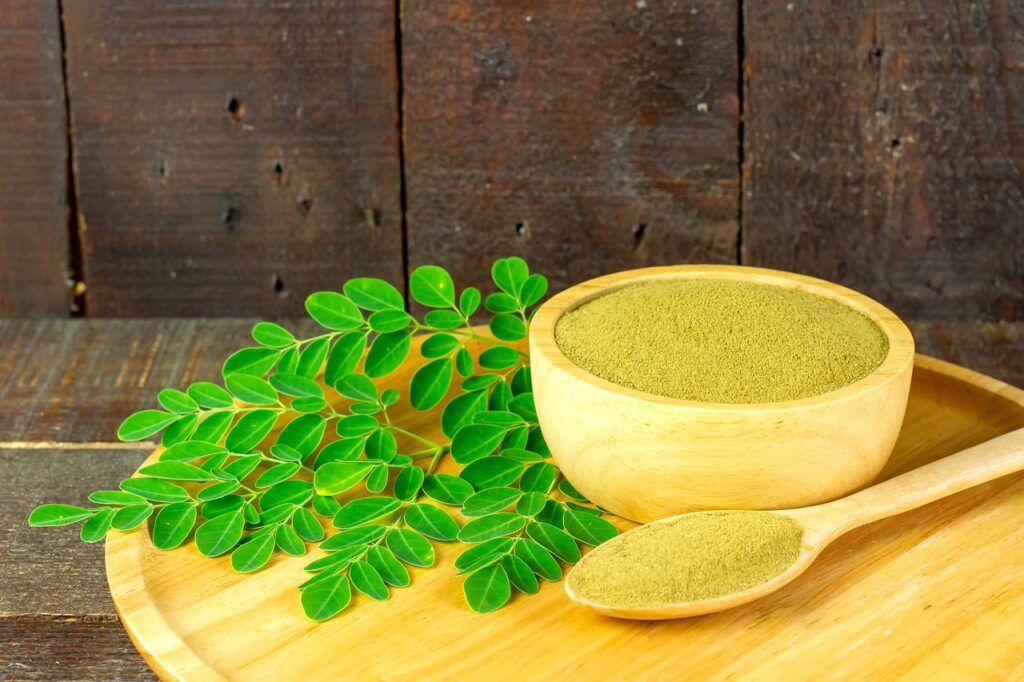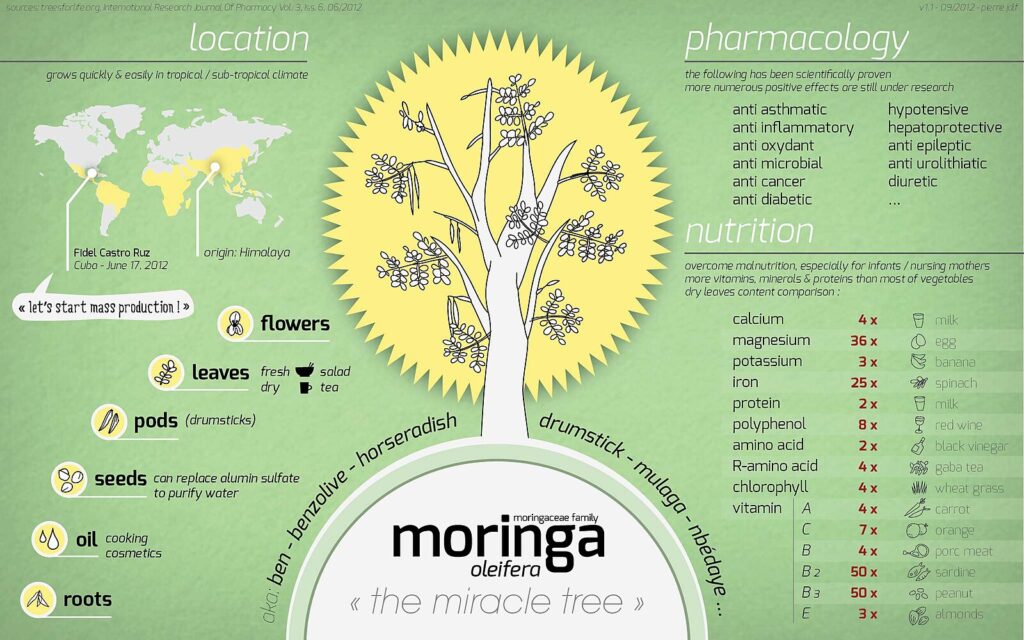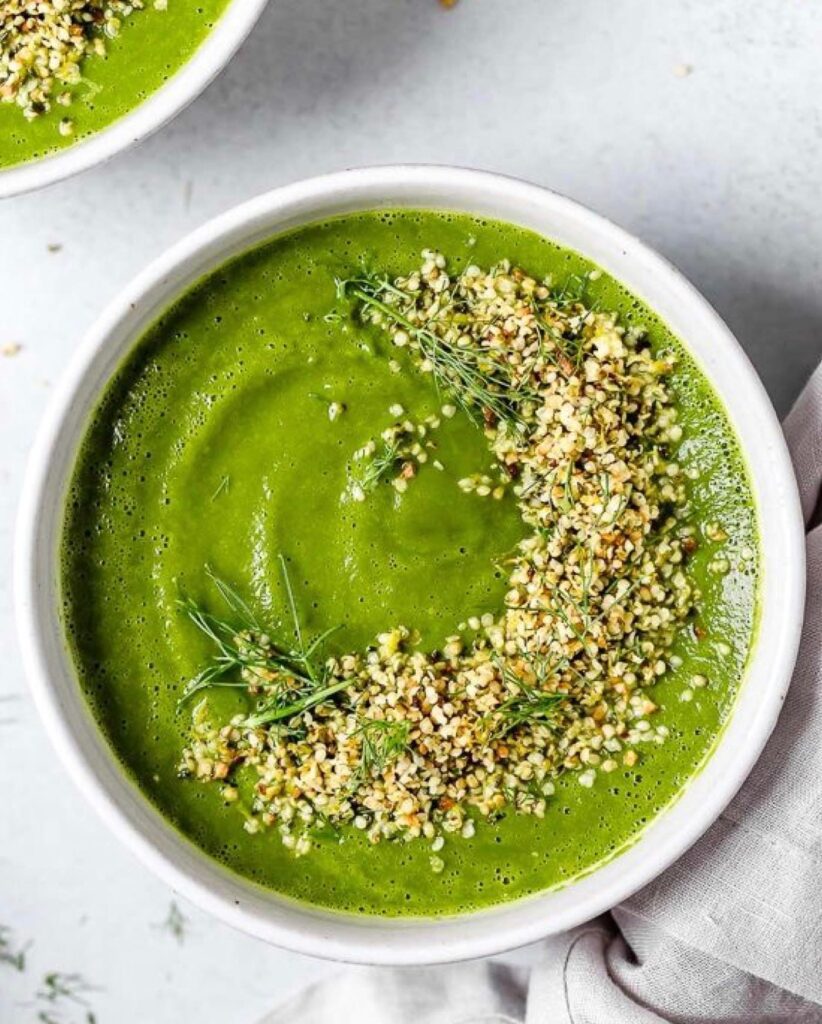Moringa leaves, often referred to as the “miracle tree,” have been celebrated for centuries for their remarkable health benefits. Native to northern India, Moringa oleifera is now cultivated in tropical and subtropical regions worldwide. This article delves into the myriad benefits of moringa leaves, highlighting why they deserve a place in your daily diet.
 Pin
Pin Image by Iskandar Ab. Rashid from Pixabay
Table of Contents
Nutritional Profile of Moringa Leaves
 Pin
Pin Image by Alongkorn Tengsamut from Pixabay
Vitamin A: The Vision and Immunity Booster
Moringa leaves are an excellent source of Vitamin A, which plays a crucial role in maintaining healthy vision. This vitamin helps protect the surface of the eye (cornea) and is essential for good vision, especially in low light. Additionally, Vitamin A supports the immune system by maintaining the health of skin and mucous membranes, which act as barriers to bacteria and viruses.
Vitamin C: The Immune System Champion
Packed with Vitamin C, moringa leaves are a natural way to boost your immune system. Vitamin C is a powerful antioxidant that helps protect cells from damage caused by free radicals. It also promotes healthy skin by aiding in collagen production, which is vital for skin elasticity and wound healing. Regular intake of Vitamin C can help reduce the duration and severity of colds and other infections.
Vitamin B6: The Brain and Metabolism Supporter
Vitamin B6, found abundantly in moringa leaves, is essential for brain health and metabolism. This vitamin helps in the production of neurotransmitters, which are chemicals that transmit signals in the brain. It also plays a role in the metabolism of proteins, fats, and carbohydrates, ensuring that your body efficiently uses the energy from the food you eat.
Calcium: The Bone and Teeth Strengthener
Moringa leaves are rich in calcium, a mineral crucial for maintaining strong bones and teeth. Calcium is essential for bone formation and maintenance, and it helps prevent osteoporosis, a condition characterized by weak and brittle bones. Additionally, calcium plays a role in muscle function, nerve transmission, and blood clotting.
Iron: The Energy and Blood Production Enhancer
Iron is vital for the production of hemoglobin, a protein in red blood cells that carries oxygen from the lungs to the rest of the body. Moringa leaves are an excellent source of iron, making them beneficial for preventing and treating anemia. Adequate iron levels are essential for maintaining energy levels and overall vitality.
Potassium: The Fluid Balance and Muscle Function Regulator
Potassium, found in high amounts in moringa leaves, is essential for regulating fluid balance in the body. It helps maintain proper hydration and electrolyte balance, which is crucial for normal cell function. Potassium also plays a key role in muscle contractions, including the heart muscle, and helps prevent muscle cramps and spasms.
Protein: The Muscle Growth and Repair Facilitator
Moringa leaves are a surprising source of protein, containing all nine essential amino acids that the body cannot produce on its own. Protein is vital for muscle growth and repair, making moringa leaves an excellent addition to the diet of athletes and those looking to build or maintain muscle mass. Protein also supports the production of enzymes and hormones, which are crucial for various bodily functions.
Antioxidants: The Oxidative Stress and Inflammation Fighters
In addition to these essential vitamins and minerals, moringa leaves are rich in antioxidants. These compounds help combat oxidative stress, which occurs when there is an imbalance between free radicals and antioxidants in the body. Oxidative stress can lead to chronic inflammation and various diseases, including heart disease and cancer. The antioxidants in moringa leaves help neutralize free radicals, reducing inflammation and protecting against cellular damage.
Moringa leaves are truly a nutritional powerhouse, offering a wide range of essential vitamins, minerals, and antioxidants. Incorporating moringa leaves into your diet can provide numerous health benefits, from boosting your immune system to supporting bone health and reducing inflammation. Embrace the goodness of moringa leaves and experience the transformative effects of this natural superfood.
Health Benefits of Moringa Leaves
 Pin
Pin Image from Wikimedia
Boosts Immune System
One of the standout benefits of moringa leaves is their ability to boost the immune system. Thanks to their high vitamin C content, these leaves enhance the body’s immune response, making it more effective at fending off infections and illnesses. Vitamin C is a potent antioxidant that helps protect cells from damage caused by free radicals. It also stimulates the production of white blood cells, which are crucial for fighting off pathogens. Regular consumption of moringa leaves can help you stay healthy and resilient against common colds and other infections.
Supports Digestive Health
Moringa leaves are a boon for digestive health. They have been shown to aid in digestion and alleviate stomach disorders such as constipation and gastritis. The high fiber content in moringa leaves promotes regular bowel movements, ensuring that your digestive system functions smoothly. Fiber adds bulk to the stool, making it easier to pass and preventing constipation. Additionally, moringa leaves have anti-inflammatory properties that can soothe the stomach lining and reduce symptoms of gastritis.
Regulates Blood Sugar Levels
For individuals with diabetes or those at risk, moringa leaves can be particularly beneficial. Studies suggest that moringa leaves can help manage blood sugar levels. They contain compounds that may improve insulin sensitivity and reduce blood sugar spikes after meals. This makes moringa leaves a valuable addition to the diet of those looking to maintain stable blood sugar levels and prevent the complications associated with diabetes.
Promotes Heart Health
Heart health is another area where moringa leaves shine. The antioxidants and anti-inflammatory properties of these leaves contribute to cardiovascular health by reducing cholesterol levels and preventing plaque buildup in arteries. High cholesterol levels can lead to the formation of plaques that narrow and harden the arteries, increasing the risk of heart attacks and strokes. By incorporating moringa leaves into your diet, you can help keep your heart healthy and reduce the risk of cardiovascular diseases.
Enhances Skin and Hair Health
Moringa leaves are a natural beauty enhancer, thanks to their rich content of vitamins A and C. Vitamin A is essential for maintaining healthy skin by promoting cell growth and repair. It helps reduce the appearance of fine lines and wrinkles, giving your skin a youthful glow. Vitamin C, on the other hand, aids in collagen production, which is vital for skin elasticity and firmness. Together, these vitamins help reduce signs of aging and promote a radiant complexion. Additionally, the nutrients in moringa leaves can strengthen hair follicles, reduce hair loss, and promote healthy hair growth.
Anti-Cancer Properties
Research indicates that moringa leaves may have anti-cancer properties. Compounds found in these leaves, such as niazimicin, have been shown to inhibit the growth of cancer cells. While more research is needed to fully understand the extent of these effects, the preliminary findings are promising. Incorporating moringa leaves into your diet could potentially provide a natural way to reduce the risk of certain types of cancer.
How to Incorporate Moringa Leaves into Your Diet: Delicious and Nutritious Ideas
Smoothies: A Nutritional Boost in Every Sip
One of the easiest and most popular ways to consume moringa leaves is by adding moringa powder to your smoothies. This method not only enhances the nutritional value of your drink but also adds a subtle earthy flavor that complements various fruits and vegetables.
 Pin
Pin Image by @prakritik
Recipe Idea: Green Moringa Smoothie
- Ingredients: 1 banana, 1 cup spinach, 1 tablespoon moringa powder, 1 cup almond milk, 1 tablespoon chia seeds, and a handful of ice.
- Instructions: Blend all the ingredients until smooth. Enjoy a refreshing and nutrient-packed smoothie to kickstart your day!
Salads: A Unique Flavor and Nutrient Boost
Fresh moringa leaves can be a delightful addition to salads, providing a unique flavor and a burst of nutrients. Their slightly spicy and earthy taste pairs well with a variety of salad ingredients.
 Pin
Pin Image by @hanuman.aspler
Soups and Stews: Enhanced Flavor and Health Benefits
Incorporating dried moringa leaves into soups and stews is a fantastic way to enhance both the flavor and nutritional content of your meals. The leaves blend seamlessly into the broth, adding a depth of flavor and a wealth of nutrients.
 Pin
Pin Image by @momewellness
Recipe Idea: Moringa Vegetable Soup
- Ingredients: 1 cup dried moringa leaves, 2 carrots (chopped), 1 onion (diced), 2 cloves garlic (minced), 1 zucchini (chopped), 4 cups vegetable broth, salt, and pepper to taste.
- Instructions: Sauté the onion and garlic in a pot until fragrant. Add the carrots, zucchini, and vegetable broth. Bring to a boil, then reduce to a simmer. Stir in the dried moringa leaves and cook for an additional 10 minutes. Season with salt and pepper before serving.
Tea: A Refreshing and Healthful Beverage
Brewing moringa leaves to make tea is a simple and effective way to enjoy their health benefits. Moringa tea is not only refreshing but also packed with antioxidants and nutrients.
 Pin
Pin Image by @miracleinthegreen
Recipe Idea: Moringa Leaf Tea
- Ingredients: 1 teaspoon dried moringa leaves, 1 cup hot water, honey or lemon (optional).
- Instructions: Steep the dried moringa leaves in hot water for 5-10 minutes. Strain the leaves and add honey or lemon if desired. Enjoy a soothing cup of moringa tea any time of the day.
Conclusion
The goodness of moringa leaves lies in their exceptional nutritional profile and wide range of health benefits. Boosting the immune system and heart health, these leaves are a versatile and valuable addition to any diet. Embrace the power of moringa and experience the transformative benefits it offers.
FAQs: The Goodness of Moringa Leaves: A Nutritional Powerhouse
Moringa leaves come from the Moringa oleifera tree, often referred to as the “miracle tree.” These leaves are highly nutritious and have been used for centuries in traditional medicine and as a dietary supplement.
Moringa leaves are rich in essential vitamins and minerals, including Vitamin A, Vitamin C, Vitamin B6, calcium, iron, potassium, and protein. They also contain a high level of antioxidants, which help combat oxidative stress and reduce inflammation.
The high Vitamin C content in moringa leaves enhances the body’s immune response by stimulating the production of white blood cells, which are crucial for fighting off infections and illnesses. Vitamin C also acts as an antioxidant, protecting cells from damage.
Yes, moringa leaves are beneficial for digestive health. Their high fiber content promotes regular bowel movements, preventing constipation. Additionally, they have anti-inflammatory properties that can soothe the stomach lining and alleviate conditions like gastritis.
Studies suggest that moringa leaves can help regulate blood sugar levels. They contain compounds that may improve insulin sensitivity and reduce blood sugar spikes after meals, making them beneficial for individuals with diabetes.
Moringa leaves contribute to cardiovascular health by reducing cholesterol levels and preventing plaque buildup in arteries. Their antioxidants and anti-inflammatory properties help protect the heart and reduce the risk of heart disease.
Moringa leaves are rich in vitamins A and C, which are essential for maintaining healthy skin and hair. Vitamin A promotes cell growth and repair, reducing signs of aging, while Vitamin C aids in collagen production, enhancing skin elasticity and firmness. These nutrients also strengthen hair follicles and promote healthy hair growth.
Research indicates that compounds in moringa leaves, such as niazimicin, may have anti-cancer effects. These compounds can inhibit the growth of cancer cells, although more research is needed to fully understand their potential.
Moringa leaves can be consumed in various forms, including fresh, dried, or powdered. You can add moringa powder to smoothies, toss fresh leaves into salads, incorporate dried leaves into soups and stews, or brew them into tea for a refreshing and healthful beverage.
Moringa leaves are generally safe for consumption. However, excessive intake may cause digestive issues such as nausea or diarrhea. It’s always best to start with small amounts and consult with a healthcare provider if you have any concerns.































